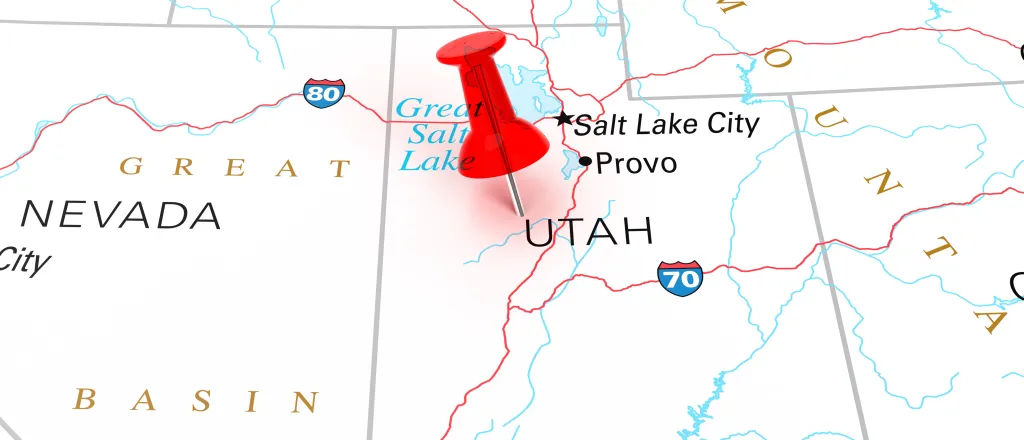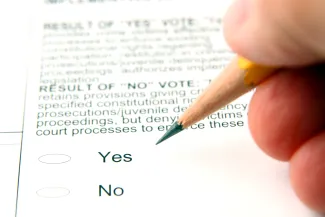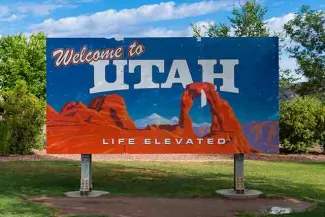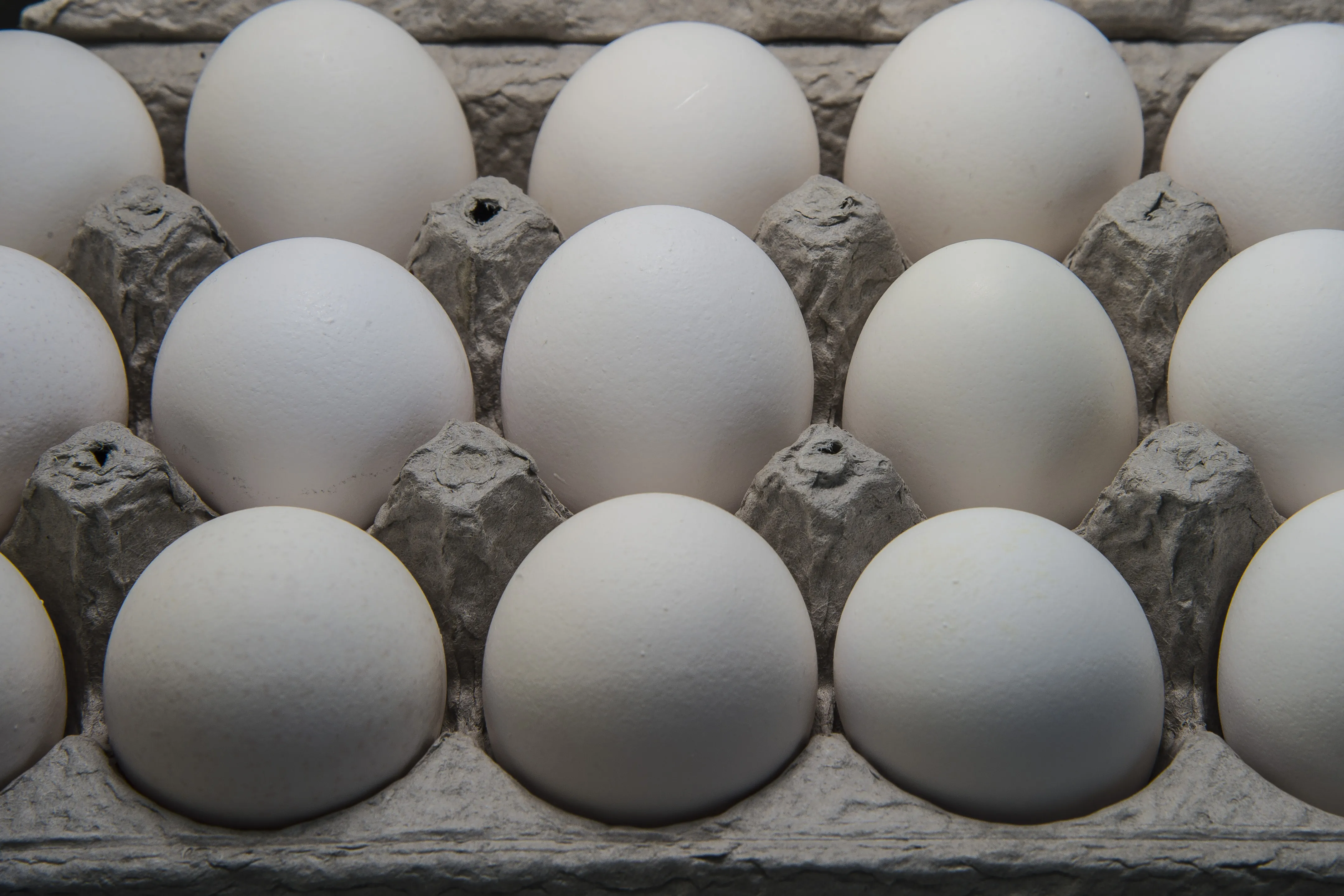
Judge hears oral arguments in Utah redistricting case
An anti-gerrymandering lawsuit contending the Utah Legislature acted unconstitutionally when it repealed and replaced a 2018 ballot initiative creating an independent redistricting commission is back in court.
Third District Court Judge Dianna Gibson heard more than three hours of oral arguments on Friday before taking the matter under advisement. It’s not yet clear when she’ll issue a ruling — though she acknowledged that “time is of the essence.”
“I’ll get a ruling out as quickly as possible,” she said.
Friday’s hearing was the latest development in a complex court case that’s stretched on for more than two years over an issue that dates back even further. It’s also a case that has the potential to force the Utah Legislature to redraw maps for its congressional political boundaries that it last set in 2021, as part of a process called redistricting that happens every 10 years.

© Svanblar iStock-146069215
In 2018, the anti-gerrymandering group Better Boundaries successfully pursued a ballot initiative known as Proposition 4to create an independent redistricting commission that would have drawn proposed boundaries for Utah’s congressional, legislative, and state school board districts based on a set of standards that the Legislature would be required to consider. Voters narrowly approved that initiative, with 50.3 percent of the vote.
However, in 2020, the Utah Legislature repealed and replaced Proposition 4 with SB200, a law that turned the independent redistricting commission into an advisory body that lawmakers could ultimately ignore. The next year, lawmakers did just that — ignored the independently-drawn maps and adopted their own, despite protests that the maps cracked Democratic strongholds in an otherwise staunchly conservative state.
In 2022, the nonpartisan groups League of Women Voters of Utah and Mormon Women for Ethical Government sued, alleging the Utah Legislature violated Utahns’ constitutional right to alter and reform their government when lawmakers repealed and replaced Proposition 4. They also allege the congressional map was an unconstitutional partisan gerrymander that favored Republicans.
The case wound its way to the Utah Supreme Court, which on July 11 issued a groundbreaking ruling that prompted celebration from the plaintiffs and dismay from Utah’s Republican legislative leaders.
That unanimous opinion reversed a previous decision issued by Gibson that dismissed the claim that the Legislature overstepped when it repealed and replaced Prop 4. The Utah Supreme Court’s ruling made clear that lawmakers do not have unfettered power to repeal or change all types of ballot initiatives, and that if they make changes that “impair” a “government reform” initiative, they must show it’s “narrowly tailored to advance a compelling government interest.”
That ruling sent the case back to Gibson’s courtroom, where attorneys for both the plaintiffs and the Legislature repeatedly cited the Utah Supreme Court’s ruling as they argued their case before a judge who must now untangle a complex web of legal questions before determining what to do next.
Aseem Mulji, an attorney for the Campaign Legal Center, which is also representing the plaintiffs in the case, argued there is “no dispute” that SB200 “impaired” Proposition 4. He also argued legislative attorneys have failed to show that their replacement of the ballot initiative was narrowly tailored enough to survive a constitutional challenge.
He argued that just because lawmakers disagreed with the criteria required in Proposition 4, that doesn’t justify repealing and replacing the voter-approved law that harnessed the people’s constitutional right to alter and reform their government.
“If they don’t like it, that’s not a good enough reason to impair a reform enacted by the people,” he said.

© iStock - gnagel
Tyler Green, an attorney representing the Utah Legislature, argued the Legislature passed SB200 to address concerns that enacting Proposition 4 would have violated the Utah Constitution, which states the Legislature “shall divide the state into congressional, legislative and other districts.”
Proposition 4’s independent commission creates a constitutional conundrum, Green argued, because it would insert itself into the legislative process and “force” the Utah Legislature to act based on a new set of rules that strays from the Legislature’s regular legislative process.
“That’s the crux of the constitutional problem,” he argued.
Gibson, while questioning the attorneys during their arguments, said that seems to be a key issue that will likely determine whether the plaintiffs will succeed — whether that provision of the Utah Constitution “grants” the Legislature the sole authority over redistricting, or if it actually sets restraints or parameters the Legislature must adhere to when redistricting.
Now it’s up to the judge to decide. The anti-gerrymandering groups are asking her to stop enforcement of SB200 and invalidate the congressional maps ahead of the 2026 primary and general elections. If she sides with them, they argue that would essentially make Proposition 4 law of the land, and lawmakers would be forced to consider a set of maps created by the independent redistricting commission.
“Our hope is the court will revive the parts of Proposition 4 that we say the Legislature unconstitutionally impaired and at the same time prevent the current congressional map, which divides Salt Lake County into four pieces, from having any further effect,” Mark Gaber, an attorney with the Campaign Legal Center, told reporters after Friday’s hearing.
He said they also hope in 2026 “there will be a new map in place that follows the requirements that the people passed in 2018 that prohibits partisan gerrymandering, requires that communities be kept together … and gives real teeth to the reform effort that the people adopted.”
Time is of the essence, Gaber said, because if the judge rules in favor of the plaintiffs, new congressional maps would need to be drawn by November 2025 ahead of the 2026 election cycle.
Utah News Dispatch is part of States Newsroom, a nonprofit news network supported by grants and a coalition of donors as a 501c(3) public charity. Utah News Dispatch maintains editorial independence. Contact Editor McKenzie Romero for questions: info@utahnewsdispatch.com.

















